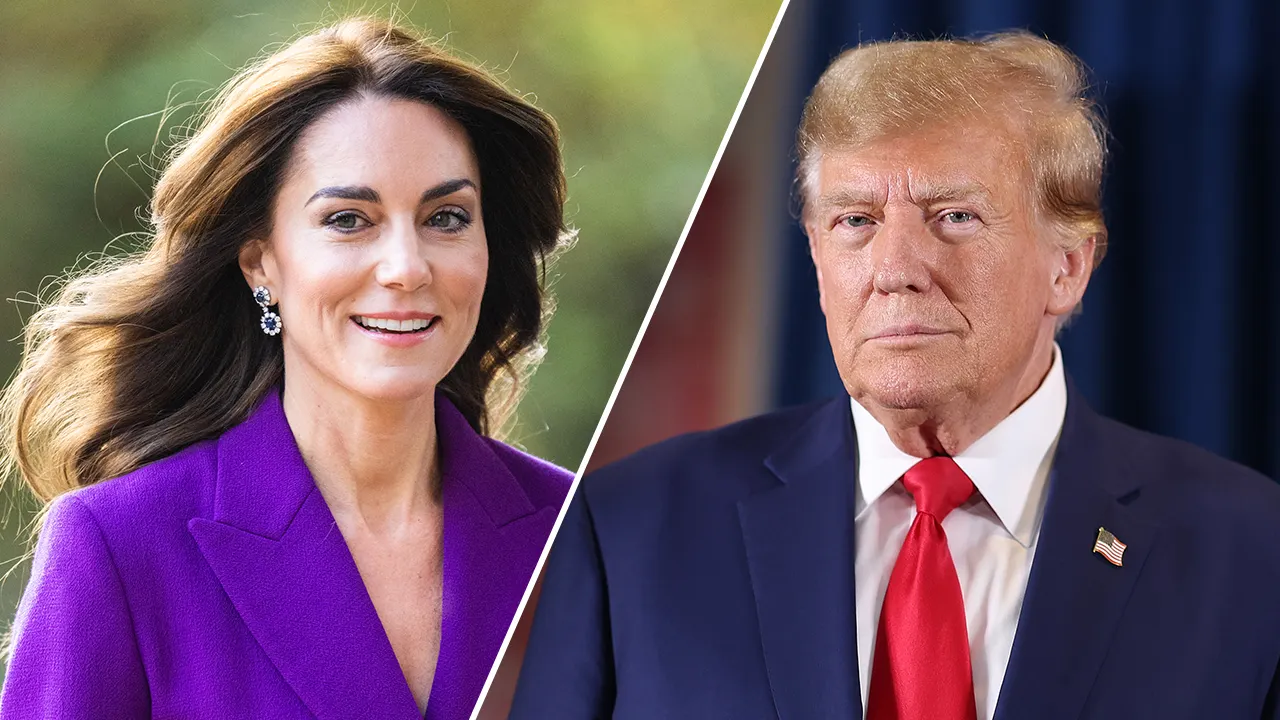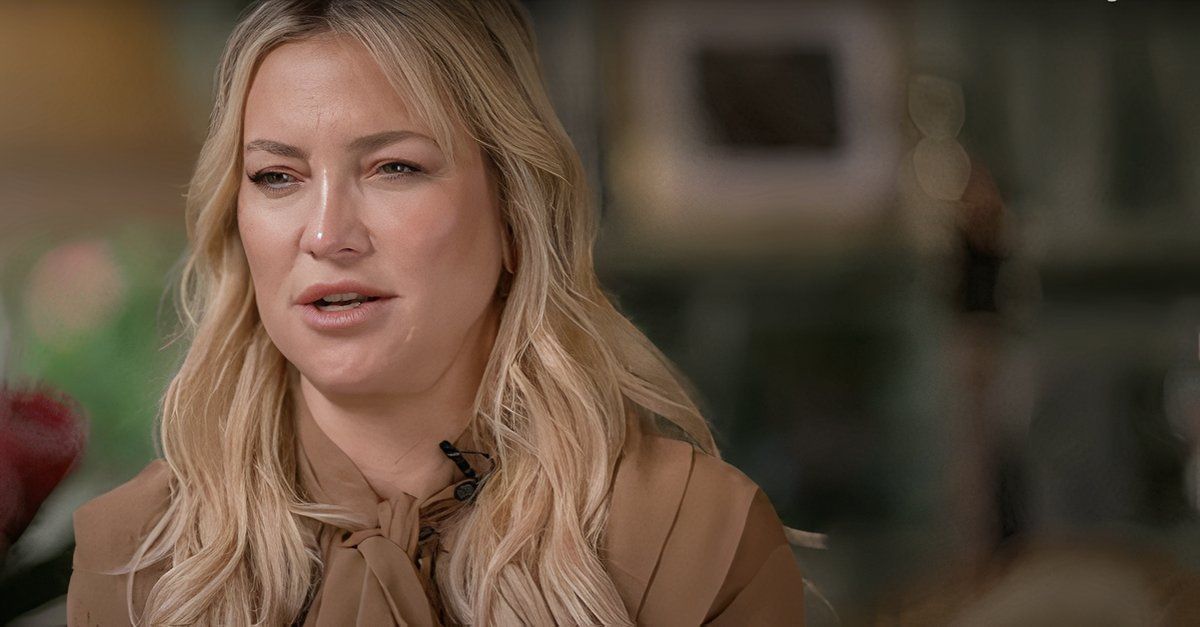Kate Hudson & Trump 2024: What's The Buzz?
Is it possible to reconcile the seemingly disparate worlds of Hollywood glamour and the political arena? The potential intersection of Kate Hudson and a 2024 presidential bid by Donald Trump presents a fascinating, and perhaps unexpected, lens through which to examine the evolving dynamics of American celebrity culture and political alignment.
The very mention of "Kate Hudson Trump 2024" sparks immediate questions: What could possibly connect the celebrated actress, known for her roles in romantic comedies and lifestyle ventures, with the twice-impeached former president? While there is no confirmed indication of direct involvement, the speculative nature of the term forces a consideration of the changing landscape where public figures, their endorsements, and their perceived political leanings are increasingly scrutinized, amplified, and sometimes, surprisingly aligned. The term serves as a focal point for analyzing how celebrity influence is wielded, how political allegiances are perceived, and how the media and public consume this intersection of entertainment and politics. It highlights the potential for unexpected endorsements, the power of personal connections, and the ever-present interplay between public image and political strategy. The concept demands an exploration of the complex relationship between fame, wealth, and political influence in modern America. We must delve into the public perception of both figures, considering their individual histories, their respective bases of support, and the potential ripple effects of such an association.
| Category | Details |
|---|---|
| Full Name | Kate Garry Hudson |
| Date of Birth | April 19, 1979 |
| Place of Birth | Los Angeles, California, USA |
| Nationality | American |
| Occupation | Actress, Author, Entrepreneur |
| Notable Works | Almost Famous, How to Lose a Guy in 10 Days, Bride Wars |
| Relationship Status | Married (to Danny Fujikawa) |
| Political Affiliation (Speculative) | None publicly stated, often perceived as leaning liberal but has expressed views that are open to different points of view. The 'Kate Hudson Trump 2024' concept is purely speculative and based on online discussions, not confirmed endorsements or affiliations. |
| Children | 3 |
| Education | Graduated from Crossroads School for Arts & Sciences |
| Business Ventures | Fabletics (activewear brand), Happy X Nature (sustainable fashion brand) |
| Social Media Presence | Active on Instagram and other platforms |
| Awards and Nominations | Golden Globe Award (Best Supporting Actress - Almost Famous) |
| Height | 5 ft 6 in (1.68 m) |
| Reference | Wikipedia - Kate Hudson |
The allure of celebrity endorsements in politics is undeniable. Historically, famous personalities have been leveraged to amplify a candidate's message, broaden their appeal, and generate media coverage. Actors, musicians, and athletes, with their built-in fan bases and powerful platforms, can become valuable assets in a political campaign. The endorsement of a well-respected figure can provide an air of credibility and legitimacy, particularly among demographics that might otherwise be disengaged from politics. However, the effectiveness of these endorsements is a complex equation. The impact can be significant if the celebrity aligns with a candidate whose values resonate with their existing audience. Conversely, an endorsement can backfire if it clashes with the celebrity's public image or if the candidate faces strong opposition.
Donald Trump's political career has been characterized by a unique blend of celebrity and political experience. His background in real estate, reality television, and business afforded him considerable name recognition and media attention before his entry into politics. This inherent visibility and understanding of media dynamics proved crucial during his 2016 presidential campaign. His rallies were often more reminiscent of entertainment events than traditional political gatherings. He embraced social media, particularly Twitter (now X), to bypass traditional media outlets and communicate directly with his supporters. This direct communication, coupled with his bombastic style, allowed him to capture the attention of voters who felt disenfranchised by the political establishment.
The concept of "Kate Hudson Trump 2024" invites speculation on how such an association might play out. Could Hudson's image, often associated with a certain California lifestyle and liberal values, be leveraged to appeal to a different segment of Trump's supporters, or to counter negative perceptions? Would it be an attempt to humanize Trump, showcasing a softer side to appeal to female voters? Or would it be a purely transactional endorsement, aimed at gaining media attention and promoting Hudson's own brand and ventures? The potential scenarios are numerous, and each carries its own set of risks and rewards.
Analyzing the public perception of both figures is crucial. Kate Hudson, daughter of the iconic Goldie Hawn, has built a successful career in Hollywood, cultivating a public image of affability, wellness, and style. She has leveraged her fame into entrepreneurial ventures, most notably Fabletics, an activewear brand. Her social media presence is carefully curated, reflecting her personal life and business endeavors. She has, for the most part, remained relatively apolitical, but she has been vocal on certain issues such as women's rights, environmentalism, and mental health.
Donald Trump, on the other hand, has cultivated a divisive public image. His political career has been marked by controversy, from allegations of sexual misconduct to investigations into his business dealings. He has a devoted following that appreciates his populist rhetoric and his promises to "Make America Great Again." However, he also faces fierce opposition from those who view him as authoritarian, divisive, and unfit for office. His relationship with the media has been contentious, with accusations of "fake news" and deliberate misrepresentation becoming commonplace. His social media presence, characterized by frequent pronouncements and incendiary statements, has significantly shaped the narrative around his presidency and his post-presidency activities.
The hypothetical scenario of a Kate Hudson endorsement of Donald Trump, or even a perceived alignment, would likely generate considerable media coverage and public debate. The political climate, already polarized, would be further energized. The impact would depend heavily on the context of the endorsement. If Hudson were to offer a wholehearted endorsement of Trump, she would likely face criticism from her established fan base. If her endorsement were based on a specific issue, rather than a blanket approval of his presidency, the reaction might be more nuanced. Conversely, an endorsement could also galvanize Trump's supporters, bolstering his credibility and expanding his appeal.
The role of the media would be central in shaping the narrative surrounding the "Kate Hudson Trump 2024" concept. Media outlets would likely dissect the association, exploring the potential motivations of both individuals, the potential impact on their respective brands, and the political implications. Social media would amplify the discussion, creating echo chambers where differing opinions would be vehemently expressed. The speed and intensity with which information spreads through social media can significantly impact public opinion, for better or worse. The media's framing of the story the emphasis on certain aspects, the selection of quotes, the choice of experts would play a crucial role in shaping how the public perceives the relationship.
The implications for Kate Hudson's brand and business ventures are worth considering. Fabletics, her activewear company, has cultivated a specific brand image that prioritizes fitness, wellness, and body positivity. An association with Trump, who is often perceived as antithetical to these values, could alienate a significant portion of her customer base. The perception of her brand could shift, particularly among those who hold strong political views. Hudson would be walking a tightrope, balancing her personal beliefs with the potential consequences for her business. Conversely, depending on how the endorsement is handled, it could potentially open up new marketing opportunities and attract a different demographic.
For Donald Trump, the endorsement of a celebrity like Kate Hudson, regardless of her specific political stance, could offer a chance to diversify his appeal and attract new voters, including women and those in the entertainment industry. It could provide him with a boost in media coverage and generate valuable publicity. It could also be seen as a strategic move, demonstrating that he is capable of garnering support from diverse sectors of society. However, the benefits would have to be carefully weighed against the potential for criticism. Some of his supporters might view the endorsement with skepticism, concerned that it dilutes his core message or that it represents a shift away from his traditional values.
The concept of "Kate Hudson Trump 2024" highlights the fluidity of political affiliations and the ever-blurring lines between entertainment, celebrity, and politics. In today's world, public figures are increasingly expected to take political stances, and their choices can have a significant impact on their careers and personal lives. The role of celebrity endorsements is evolving, shifting from simple affirmations to complex strategies that are carefully designed to capture attention and influence public opinion. The media plays a central role in shaping the narrative, and social media platforms provide an immediate channel for opinions to be expressed and debated. It is essential to understand these dynamics to fully grasp the implications of celebrity endorsements and their influence on the political landscape.
Furthermore, understanding the social and cultural context is crucial. The political landscape in America is highly polarized, with deep divisions among voters. An endorsement or even a perceived association between a celebrity and a politician can easily ignite controversies. The specific details of the association, the issues involved, and the broader public sentiment all play a significant role in shaping the overall response. Whether it is a celebrity endorsement, a public statement, or simply a rumor circulating online, the impact can be far-reaching and have a profound effect on the individuals involved, the political campaigns, and the media landscape.
The potential for a "Kate Hudson Trump 2024" scenario also provides a valuable opportunity to critically examine the role of money and influence in politics. High-profile endorsements, the use of celebrity platforms, and the financial resources of influential individuals can all play a part in shaping public opinion and influencing the outcome of elections. The level of funding available to campaigns, the media coverage they receive, and their ability to connect with voters are often closely intertwined with celebrity endorsements and the publics perception of their alliances.
The case study of "Kate Hudson Trump 2024" reveals a complex interplay of factors that are shaping American politics, and it demonstrates the importance of critical thinking, media literacy, and a nuanced understanding of celebrity culture. While the specifics of this hypothetical situation remain in the realm of speculation, it is a valuable thought exercise that illustrates the importance of considering how celebrity endorsements, media coverage, and public opinion can collectively impact political discourse and the electoral process. Ultimately, the analysis of this scenario prompts a deeper understanding of the dynamic relationship between entertainment, politics, and the ever-evolving landscape of American society.
In conclusion, while the phrase "Kate Hudson Trump 2024" is hypothetical, it serves as a powerful prompt to analyze the intersection of celebrity and politics. It calls into question the potential motivations behind public endorsements, the influence of media narratives, and the evolving role of fame in shaping political campaigns. It reminds us of the importance of evaluating information critically and recognizing the complex relationships between public image, personal values, and political allegiances. The exploration of this concept offers a window into the constantly shifting landscape of American politics and culture.


:max_bytes(150000):strip_icc():focal(646x0:648x2)/kate-hudson-last-nights-look-070523-70115e206157469aa49a2f4dcf1acc89.jpg)
